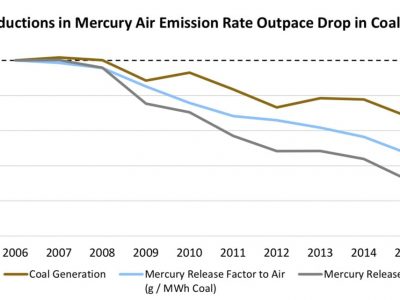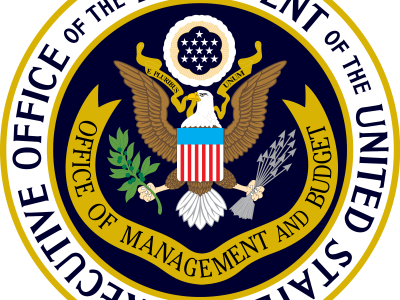Regulation
Will public power advance decarbonization?
Increasing public control of energy systems may not facilitate decarbonization
Over the past few years, there has been a push in both Europe and the United States for a “Green New Deal” in which decarbonization efforts would be pushed by aggressive, direct government investments in clean energy technology and infrastructure. But in much of the United States and in Europe, large portions of the electricity …
Continue reading “Will public power advance decarbonization?”
CONTINUE READINGAdvancing renewables through electricity restructuring
Reducing barriers to siting new electricity generation can help advance renewable energy production
Our electricity system will be crucial to decarbonization efforts, both because much of our current energy comes from electricity, and because decarbonizing sectors like transportation will require significant electrification. And electricity is the sector where we have had the most success in decarbonization so far in the United States. But there is still more to …
Continue reading “Advancing renewables through electricity restructuring”
CONTINUE READINGBadly Drafted and Constitutionally Suspect
New laws blacklist “discrimination” against fossil fuel companies in states that normally could care less about discrimination of any kind.
Texas and a number of other states have passed laws banning what they call “boycotts of fossil fuel companies.” More precisely, they ban state investment or contracting with firms that “boycott” fossil fuel companies. Besides being fundamentally misguided and difficult to implement, these blacklist laws are poorly drafted and quite likely unconstitutional. The “fundamentally misguided” …
Continue reading “Badly Drafted and Constitutionally Suspect”
CONTINUE READINGClarifying the Congressional Review Act
The Ninth Circuit rules on the preclusive effect of a CRA disapproval in a wilderness protection case.
Soon after Trump took office, Republicans used the Congressional Review Act (CRA) to overturn sixteen Obama-era regulations. If they win control of the government in 2024, they’ll undoubtedly do the same thing to Biden regulations. It behooves us, then, to understand the effect of these legislative interventions. A Ninth Circuit ruling last week in a …
Continue reading “Clarifying the Congressional Review Act”
CONTINUE READINGRegistration Is Open for the 2022 California Water Law Symposium
California’s Most Important Annual Water Law Conference–Law Student Organized!–Set for April 9th
Registration is now open for California’s 2022 Water Law Symposium, scheduled for Saturday, April 9th. U.C. Davis School of Law has the honor of hosting this year’s Symposium, which is an extraordinary event in two respects: first, it is organized entirely by law students (rather than law firms, water organizations, law professors or commercial vendors). …
Continue reading “Registration Is Open for the 2022 California Water Law Symposium”
CONTINUE READING(Mis)Estimating Regulatory Costs
EPA’s cost estimate for its mercury rule was way, way off.
In describing cost-benefit analysis to students, I’ve often told them that the “cost” side of the equation is pretty simple. And it does seem simple: just get some engineers to figure out how industry can comply and run some spreadsheets of the costs. But this seemingly simple calculation turns out to be riddled with uncertainties, …
Continue reading “(Mis)Estimating Regulatory Costs”
CONTINUE READINGMajor Questions About Today’s Big Climate Case
Here’s what you need to know about today’s oral argument in W. Va. v. EPA
The Supreme Court is hearing oral argument this morning in West Virginia v. EPA. The case is a challenge by the coal industry and coal states to EPA’s power to limit carbon emissions by power plants. Here’s what to look for today. Q: What is the case about? A: In practical terms, the question is what EPA …
Continue reading “Major Questions About Today’s Big Climate Case”
CONTINUE READINGDon’t Leave the Public Out of the Public Utilities Commission
California may have denied due process for those questioning PGE’s penalty for starting the Kincade Fire
The Sonoma County District Attorney has been pursuing criminal charges against the Pacific Gas & Electric Company (PG&E) for its role in sparking the 2019 Kincade fire, which reportedly destroyed 374 structures and led to over $600 million in damages. These criminal charges returned to the news today because the District Attorney has asked to …
Continue reading “Don’t Leave the Public Out of the Public Utilities Commission”
CONTINUE READINGWetlands, the Clean Water Act & the Supreme Court: the Sacketts Return to Washington
Justices Grant Review (Again) in the Sacketts’ Longstanding Wetlands Battle With the Government
This week the U.S. Supreme Court agreed to hear the case of Sackett v. USEPA, No. 21-454, an important appeal involving the scope of federal authority to regulate wetlands under the Clean Water Act. If the Sackett litigation sounds familiar, it should: the case has been pending for well over a decade, and this is …
CONTINUE READINGThe Black Box of OIRA
OIRA oversees the whole regulatory state. We probably know more about the inner workings of the CIA.
The Office of Information and Regulatory Affairs (OIRA) oversees government regulation across the federal government. Some portray it as a guardian of rationality, others as biased in favor of industry. Public information about OIRA is so limited that it’s impossible to know one way or the other, due to the veil of secrecy that surrounds …
Continue reading “The Black Box of OIRA”
CONTINUE READING










